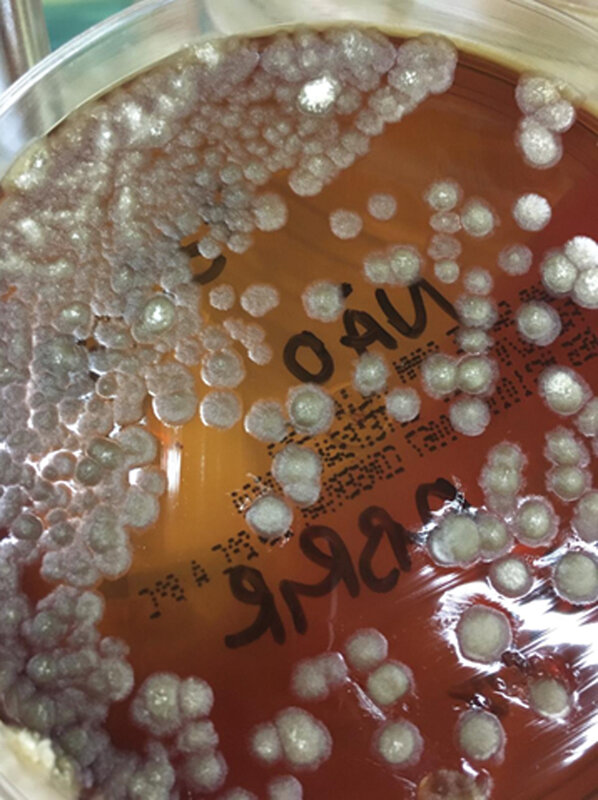Honey and Lemon for Acne: A Scientific Perspective on This Popular Home Remedy
The health benefits of honey are lemon are, they both are part of different ancient cultuers. From improving digestion to promoting glowing skin, this dynamic duo has gained a loyal following.
However, when it comes to treating acne with honey and lemon, there is a need for scientific scrutiny. Can this remedy truly work, or does it fall short for certain individuals?
This blog delves deep into the science behind honey and lemon as acne remedies, exploring their chemical properties, benefits, limitations, and why this combination might not be the best choice for everyone.
Understanding Acne: Causes and Triggers
Before diving into honey and lemon’s efficacy, it’s crucial to understand the root causes of acne. Acne is a multifactorial skin condition caused by:
- Excess sebum production
- Clogged pores due to dead skin cells
- Bacterial growth (Cutibacterium acnes)
- Inflammation

Additional factors such as genetics, hormonal changes, diet, and environmental stressors can exacerbate acne. Treatments typically focus on reducing inflammation, controlling oil production, and preventing bacterial proliferation.
The Science Behind Honey for Acne
Honey has been used for centuries in wound healing and skincare, thanks to its unique properties:
- Antibacterial Properties
Honey contains hydrogen peroxide, an antibacterial agent that can inhibit the growth of acne-causing bacteria like C. acnes. Manuka honey, in particular, is rich in methylglyoxal, a compound with potent antimicrobial activity. - Anti-Inflammatory Effects
Studies have shown that honey can reduce redness and swelling associated with acne due to its anti-inflammatory properties. - Moisturizing and Soothing
As a natural humectant, honey helps retain skin moisture without clogging pores, making it ideal for individuals with dry or combination skin. - Wound Healing
Honey promotes tissue repair and reduces the risk of scarring by stimulating fibroblast activity and collagen synthesis.
Limitations of Honey:
- While honey may help reduce bacterial growth and inflammation, it cannot unclog pores or regulate sebum production.
- Some commercial honeys lack the necessary antibacterial potency, reducing effectiveness.
The Science Behind Lemon for Acne
Lemon is rich in vitamin C (ascorbic acid) and citric acid, often touted for its brightening and exfoliating effects:
- Antioxidant Benefits
Vitamin C is a powerful antioxidant that helps neutralize free radicals, reducing oxidative stress and supporting skin repair. - Exfoliation
Citric acid, an alpha-hydroxy acid (AHA), exfoliates dead skin cells, promoting cell turnover and potentially unclogging pores. - Brightening Effect
Lemon juice may reduce hyperpigmentation and acne scars due to its mild bleaching properties.
Limitations of Lemon:
- Highly Acidic Nature: Lemon juice has a pH of 2-3, making it too acidic for most skin types. This can disrupt the skin’s natural barrier (acid mantle) and lead to irritation, redness, and dryness.
- Photosensitivity: Lemon can make the skin more sensitive to UV radiation, increasing the risk of sunburn and post-inflammatory hyperpigmentation.
- Allergic Reactions: Some individuals may develop contact dermatitis when exposed to lemon juice.
Combining Honey and Lemon for Acne
Proponents of this remedy argue that combining honey and lemon offers a balanced approach: honey’s soothing and antibacterial effects counteract lemon’s harshness. However, this combination might not work well for everyone.
Potential Benefits:
- Honey can mitigate some of the irritation caused by lemon’s acidity.
- Both ingredients have antibacterial properties that may target C. acnes.
- The mixture can act as a quick fix for mild acne and dull skin.
Why This May Not Be a Good Choice:
- Skin Sensitivity: Lemon’s acidity is too harsh for sensitive or acne-prone skin, potentially worsening inflammation.
- Unpredictable Results: Not all skin types react well to natural remedies. Those with oily or severe acne may see little to no improvement.
- Photosensitivity Risk: Using lemon-based treatments without proper sun protection can cause lasting skin damage.
- Inconsistent Potency: The effectiveness of honey depends on its purity and type, with raw or Manuka honey being more potent than processed varieties.
Scientific Studies on Honey and Lemon for Skin
- Honey’s Role in Wound Healing:
A study published in the Journal of Cosmetic Dermatology (2016) demonstrated honey’s efficacy in reducing bacterial infections and promoting healing in skin wounds. - Lemon’s Antioxidant Properties:
Research in the Journal of Clinical and Aesthetic Dermatology highlighted the role of vitamin C in reducing hyperpigmentation and oxidative stress. - Combination Studies:
While individual studies on honey and lemon exist, there is limited scientific evidence supporting their combined use for acne treatment.
Alternative Approaches to Acne Treatment
If honey and lemon aren’t suitable for your skin, consider these scientifically-backed alternatives:
- Salicylic Acid:
This beta-hydroxy acid (BHA) penetrates oily skin and unclogs pores, making it effective for blackheads and whiteheads. - Benzoyl Peroxide:
A powerful antibacterial agent that kills C. acnes and reduces inflammation. - Tea Tree Oil:
Known for its antimicrobial properties, tea tree oil can be a gentler alternative to lemon. - Niacinamide:
A form of vitamin B3 that reduces redness, regulates sebum production, and improves the skin barrier. - Retinoids:
These vitamin A derivatives promote cell turnover and prevent clogged pores, effectively targeting all types of acne.
Personal Experience and Why Honey and Lemon Didn’t Work for Me
When I first tried honey and lemon for acne, I was hopeful about their natural benefits. However, my experience was far from magical. Here’s why:
- Increased Irritation: Despite using a diluted lemon mixture, my skin became red and irritated after a few applications.
- Lack of Long-Term Results: While honey soothed my skin temporarily, it didn’t address the root causes of my acne, such as hormonal imbalances.
- Photosensitivity: After using lemon, I noticed that my skin was more prone to sunburn, even with sunscreen.
Where to Find Quality Honey and Lemon
If you still wish to try this remedy, sourcing high-quality ingredients is crucial:
- Honey:
- Opt for raw, organic, or Manuka honey with UMF (Unique Manuka Factor) certification for maximum potency.
- Trusted brands: Comvita, Wedderspoon, Nature Nate’s.
- Lemon:
- Choose organic lemons to avoid pesticide residue.
- Look for fresh, ripe lemons with vibrant yellow skin.
Availability by Region:
- North America: Farmers’ markets, Whole Foods, and health stores stock raw honey and organic lemons.
- Europe: Look for Manuka honey in specialty health shops or online platforms like Holland & Barrett.
- Asia: Raw honey is available in local markets, while organic lemons are common in grocery stores.
- Australia/New Zealand: Manuka honey is native to this region and widely available.
How to Use Honey and Lemon Safely
If you decide to try this remedy, follow these precautions:
- Patch Test: Apply a small amount of the mixture to your wrist and wait 24 hours to check for adverse reactions.
- Dilute Lemon Juice: Mix lemon juice with honey or water to reduce acidity.
- Sun Protection: Always apply sunscreen after using lemon-based treatments.
Why Consulting a Doctor for Skin Issues Is Crucial
When it comes to addressing skin issues like acne, hyperpigmentation, or any form of skin infection, it’s essential to take a holistic approach. While home remedies and over-the-counter products might provide temporary relief, they often only address the symptoms, not the root cause. My piece of advice? If you’re struggling with persistent or severe skin issues, always seek professional help from your family doctor or, better yet, a dermatologist. Many skin conditions are indicators of underlying health problems that require a more comprehensive treatment plan.
Skin as a Window to Internal Health
Your skin is not just a superficial layer—it’s an organ that reflects what’s happening inside your body. Many systemic health issues manifest on the skin before other symptoms appear, making it a crucial diagnostic tool for healthcare professionals. For instance, chronic acne, hyperpigmentation, or unusual skin infections might point to hormonal imbalances, metabolic disorders, or even autoimmune diseases.
The Link Between Acne and Hormonal Imbalances
Acne is one of the most common skin concerns, especially among adolescents and young adults. While it’s often attributed to clogged pores and bacterial growth, the underlying causes can be more complex. Polycystic Ovary Syndrome (PCOS), for example, is a common hormonal disorder among women that can lead to persistent acne.
- How Hormones Contribute to Acne:
Hormonal fluctuations increase sebum production in the skin, leading to clogged pores and the growth of acne-causing bacteria like Cutibacterium acnes. Women with PCOS often experience elevated levels of androgens, which exacerbate these effects. - Why Topical Treatments Might Not Be Enough:
If your acne is driven by hormonal imbalances, using topical creams or cleansers alone might yield little to no results. Instead, addressing the root cause—hormonal regulation—through medications like oral contraceptives, anti-androgens, or lifestyle changes is crucial.
Hyperpigmentation: More Than Just a Cosmetic Concern
Hyperpigmentation, characterized by dark patches on the skin, is another issue that often signals deeper health problems. A well-known example is acanthosis nigricans, a condition where thickened, darkened skin appears on areas like the neck, armpits, or groin.
What Is Acanthosis Nigricans?
Acanthosis nigricans is not just a cosmetic problem; it’s a potential warning sign of underlying conditions like:

- Insulin Resistance and Diabetes:
This condition is strongly associated with insulin resistance, a precursor to Type 2 diabetes. High insulin levels stimulate the growth of skin cells and melanin production, resulting in dark, velvety patches. - Obesity:
People who are overweight or obese are more prone to acanthosis nigricans due to increased insulin levels and inflammation. - Hormonal Disorders:
Conditions like PCOS or adrenal gland disorders can also lead to this type of hyperpigmentation. - Certain Medications:
Drugs like oral contraceptives, corticosteroids, or niacin can sometimes trigger acanthosis nigricans as a side effect.
Why You Shouldn’t Ignore It
Many individuals dismiss darkened patches of skin as mere aesthetic issues, but they’re often an early sign of metabolic syndrome, prediabetes, or even internal malignancies in rare cases. Addressing the underlying condition not only improves your skin but also prevents long-term complications like cardiovascular disease or diabetes.
Skin Infections and Their Underlying Causes
Recurrent or unusual skin infections can also indicate systemic problems:
- Fungal Infections:
Conditions like recurrent athlete’s foot or fungal nail infections might signal a weakened immune system. For example, people with uncontrolled diabetes are more prone to these infections due to high blood sugar levels that promote fungal growth. - Bacterial Infections:
Frequent boils or abscesses could be a sign of an underlying immunodeficiency or poorly controlled diabetes. - Viral Infections:
Chronic viral infections like herpes simplex or shingles might point to immune suppression, often seen in conditions like HIV/AIDS or in individuals undergoing chemotherapy.
The Importance of Early Diagnosis
Ignoring skin issues or self-medicating without a proper diagnosis can lead to delayed treatment of underlying conditions. For example:
- Treating acne with over-the-counter products might work temporarily but won’t address hormonal imbalances if PCOS or thyroid dysfunction is the cause.
- Using bleaching creams for hyperpigmentation caused by insulin resistance might lighten the skin but won’t reduce the risk of developing diabetes.
By consulting a dermatologist or physician, you gain access to diagnostic tools like blood tests, hormone panels, or biopsies that can pinpoint the root cause of your skin issues.
Common Underlying Conditions That Affect Skin Health
Let’s take a closer look at some systemic issues that frequently manifest as skin problems:
- Thyroid Disorders:
Both hypothyroidism and hyperthyroidism can cause dry skin, hair thinning, or hyperpigmentation. - Liver Disease:
Conditions like hepatitis or cirrhosis can cause jaundice (yellowing of the skin) or spider angiomas. - Autoimmune Diseases:
Lupus, for instance, can lead to a butterfly-shaped rash across the cheeks, while psoriasis causes thick, scaly patches of skin. - Nutritional Deficiencies:
A lack of vitamins like B12, iron, or zinc can result in pale skin, brittle nails, or hair loss.
When to See a Doctor
Here are some signs that your skin issue might warrant a visit to a healthcare professional:
- Acne that doesn’t improve with standard treatments or worsens over time.
- Hyperpigmentation in areas like the neck, armpits, or groin.
- Persistent or recurrent skin infections.
- Unexplained rashes, discoloration, or itching.
- Sudden changes in the appearance of moles or skin lesions.
Practical Tips for Maintaining Skin Health
While consulting a doctor is crucial for addressing underlying conditions, you can also adopt practices to support overall skin health:
Regular Exercise:
Physical activity improves circulation, delivering oxygen and nutrients to your skin while reducing stress levels.
Maintain a Balanced Diet:
Include foods rich in antioxidants, vitamins, and minerals to promote skin regeneration and reduce inflammation.
Stay Hydrated:
Drinking enough water helps flush out toxins and keeps your skin hydrated.
Manage Stress:
Chronic stress can worsen conditions like acne or psoriasis by triggering hormonal imbalances and inflammation.
Avoid Harsh Products:
Overusing harsh cleansers or scrubs can damage your skin barrier, making it more susceptible to infections and irritation.
Conclusion: The Verdict on Honey and Lemon for Acne
Honey and lemon are natural ingredients with notable benefits, but their effectiveness as acne remedies is subjective and depends on individual skin types. While honey offers antibacterial and healing properties, lemon’s harshness and potential for irritation make it a risky choice for many.
This remedy may provide temporary relief for mild acne. However, those with sensitive, oily, or severe acne should consider scientifically proven alternatives like salicylic acid, benzoyl peroxide, or retinoids. Always consult a dermatologist before starting any new treatment, natural or otherwise.
By understanding the science behind honey and lemon, you can make informed decisions about your skincare routine, ensuring both safety and effectiveness.
References:
Journal of Cosmetic Dermatology
PubMed: Honey in Wound Healing











Leave a Reply